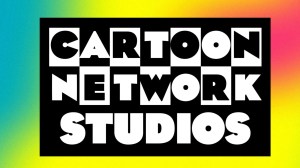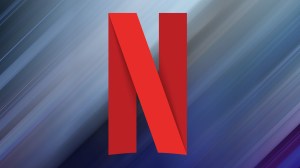To celebrate Earth’s Mightiest Week and the release of Avengers: Endgame, ComicBook.com has gotten in touch with several comics creators and professionals who are either currently working on a series featuring some of the characters of Avengers: Endgame or have made a major impact on the characters in some way.
Videos by ComicBook.com
Today, we’re featuring interviews with Jonathan Hickman and Tom Brevoort. Hickman wrote a nearly 80-issue run on Avengers and New Avengers starting in 2012, which included the events Infinity and Secret Wars. Not only did Hickman write one of the most epic Avengers storylines of all time, he also co-created the Black Order, which appeared in Avengers: Infinity War as the Children of Thanos. Brevoort is the longtime editor for the Avengers line and has ushered the team from Avengers: Dissembled through the Brian Michael Bendis-helmed New Avengers era, the Hickman “Time Runs Out” era, and into the modern day.
The interviews below, which were conducted by email, have been lightly edited for clarity only.

Welcome to Earth’s Mightiest Week! From April 22nd to April 26th, ComicBook.com is celebrating the culmination of the Marvel Cinematic Universe so far with a series of exclusive articles, lists, arguments, and more. If you’d like to check out some of our other offerings from this week, you can click the image above.
Jonathan Hickman

ComicBook.com: When you started your Avengers run back in 2012, did you foresee that your time with the franchise would have such an impact on both the Marvel comics universe and the Marvel movies?
Jonathan Hickman: I don’t really think of any of it that way. I mean, sure, it’s cool to show my kids, but anytime I come onto a book I’m really only trying to do my version of the franchise I’m working on. If some of that makes it’s way up and down the Marvel pipeline, fantastic, if it doesn’t, then I’m still happy. I’ve done what I wanted to.
Your Avengers run started just a few months after the release of the first Avengers movie. Did you feel any extra pressure from taking the reins of a franchise that had just smashed box-office records at the time?
No, in fact I pushed as far away from that as possible. It’s my opinion that we need to be years ahead of where the movies are, not reacting to what we they are doing. Sure, it’s impossible to not write Iron Man without hearing Robert Downey Jr., but in general I think it’s a really good idea to push past all that.
I mean, it’s been a while since I looked at any of that stuff, but I’m pretty sure my run started with the movie Avengers losing. I was making a point.
What were your goals for the Avengers franchise when you first started developing your giant Avengers arc?
The same as with anything else. Do it my way and see what happens.
Hickman (cont.)

Not including Infinity or Secret Wars, you wrote nearly 80 issues of the Avengers books during your time with the franchise. How much did your plans for the Avengers franchise change as time went on?
It was always going to end at Secret Wars, but of course, it got tweaked as I went along. Plus, the thing about writing the Avengers is integrating all the various stuff going on in the other books. For me it was Old Man Rogers, Superior Spider-Man, etc.
That’s always the tricky part of doing big books at Marvel.
Was it surreal seeing the Black Order on the big screen? Did you expect those characters to have the lasting power that they have had?
It was cool. I think a big reason why those characters got used was that they looked so great. My only beef was that they didn’t use Jerome Opena’s Proxima design. His was much sharper.
What was your favorite moment to write during your time guiding the Avengers franchise?
Oh, there were a lot of moments I liked. That bit where Thor threw his hammer around the sun was pretty fun.
Your superhero work has almost exclusively involved team series as opposed to books focusing on individuals. Is there a reason that you like working with big casts and are there any Marvel characters that you’d consider writing a solo series for?
I’d very much like to do a single protagonist book. In fact, I’ll probably do that next. As for what it’ll be, I dunno, there’s some Black Panther stuff I was thinking about doing, I have a Captain Marvel story, I like Nova, I like Doctor Strange. We’ll see.
Tom Brevoort

ComicBook.com: You’ve edited Avengers books for nearly 25 years. How do you feel the Avengers franchise has changed over that time?
Tom Brevoort: The biggest change is that people know what the Avengers is now, and know the most prominent characters. That really wasn’t the case when I started once you moved out of the world of the comic book specialty shops. But nowadays the Avengers are international superstars, and everybody understands what it means to be an Avenger.
One of Marvel’s biggest successes during your time as an editor on the Avengers line was Brian Michael Bendis’ New Avengers run, which saw radical changes to the Avengers roster and a constantly shifting team focus and dynamic. What is the legacy of the New Avengers period, especially now that the team has seemingly returned to a more stable roster anchored by characters like Thor, Captain America, and Iron Man?
New Avengers was the series that positioned the Avengers at the very center of the Marvel Universe in a way they’d never quite been able to achieve before—and some of that was in eliminating the self-imposed limitation that prevented certain key characters from becoming Avengers. In particular, bringing in Spider-Man and Wolverine was traumatic for some (myself included) but it also brought a much wider audience to the series, as the impact of the storylines that we were telling were more likely to be felt in the home titles of all of those assorted players. New Avengers made it possible for a wider diversity of characters to be considered mainstay Avengers—something that the movies are beginning to follow the pattern of.
We’ve seen Marvel commit to Avengers storylines that sometimes take years to complete, whether its Hickman’s time on the series (which lasted nearly 80 issues), the Bendis New Avengers run, or most recently Jason Aaron’s Avengers series. How does committing to these large epic storylines impact Marvel’s publishing strategy? Do you see any drawbacks to committing to a storyline that could take years to complete?
The only drawback is if you bet on a creator who doesn’t have the goods, and that’s happened infrequently in my time in the chair. And even then, all that really happens is that a run gets cut short and somebody else gets a swing of the bat. But the people writing Avengers need to be able to have big ideas and to be able to execute those ideas effectively, and that takes a certain amount of space—and so a certain amount of commitment.
Brevoort (cont.)

Has the success of the Avengers movies changed how Marvel views the Avengers comics line? Is there any sort of emphasis on keeping the character seen in the movies active in some way during the comics?
Only in the sense that those characters are now much more recognized as Avengers. But it’s not as though Thor, Captain America, and Iron Man weren’t the Holy Trinity of Avengers going back to 1964. But there isn’t any mandate to use any particular characters apart from good common sense. You want the Avengers to represent all of the best characters in the line, in whatever iteration you pull together. So of course you’re going to lean hard on the more recognizable characters more often than not.
Were you surprised at how Marvel Studios has adapted various comics storylines and characters?
Surprised isn’t really the right word, in that we were always in contact with Marvel Studios about their plans and ours, and there was typically good communication between us. I was happy that they were able to pull off the first Avengers film so successfully—I sat through it twice in back-to-back Marvel screenings, and then that they were able to do what amounts to the first event/crossover movie in Avengers: Infinity War. Having edited a number of such events, I felt like there were some lessons in how they approached Infinity War that I wanted to apply to the next event storylines that I worked on—and so I have. So yes, it’s great whenever they reference or reflect the stories and moments that we’ve previously done in the comics.
Which Avengers character do you think will become the next big mainstream superhero?
I think that all depends on who Marvel Studios decides to focus the next solo movie they do on.








